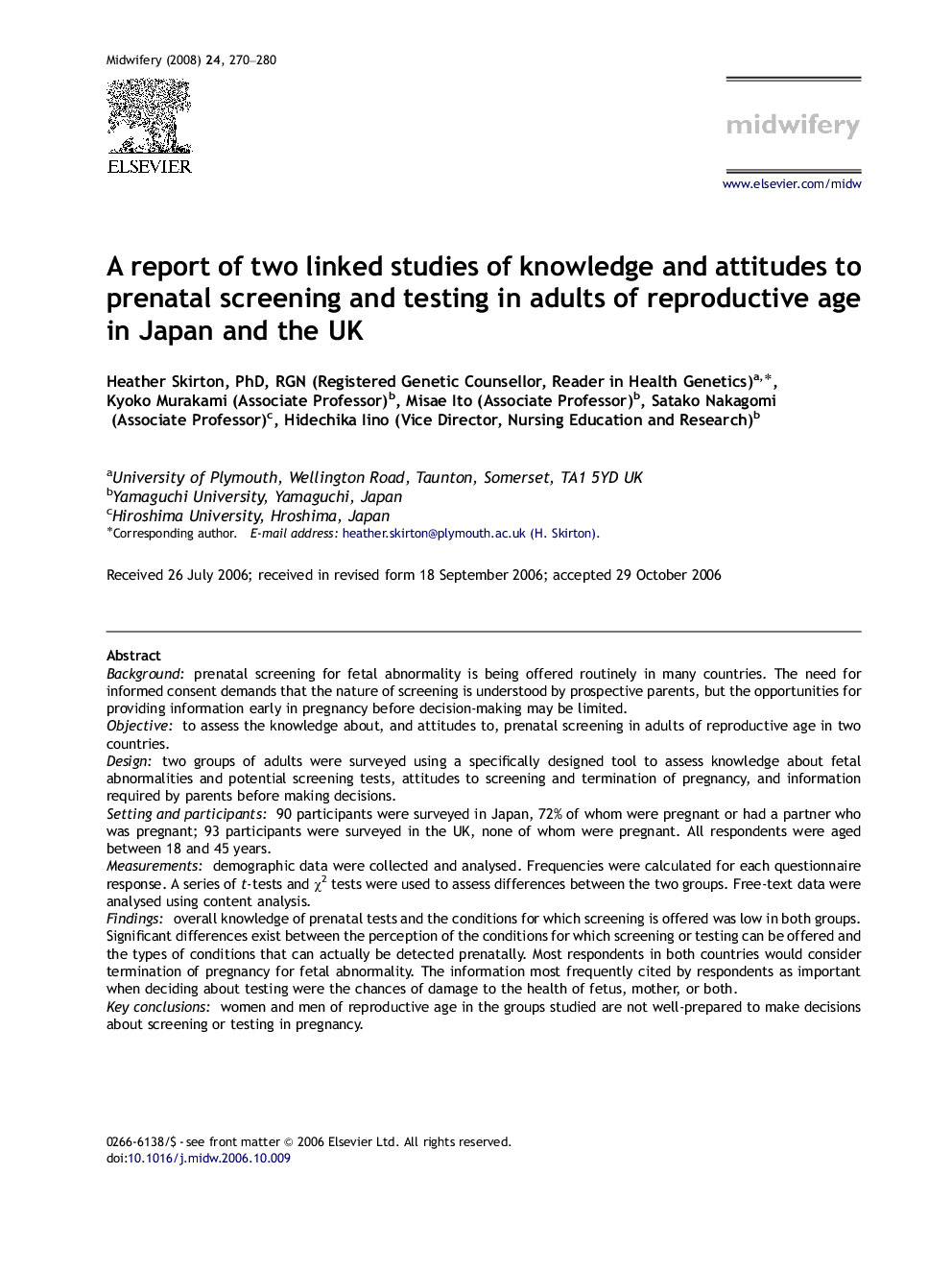| Article ID | Journal | Published Year | Pages | File Type |
|---|---|---|---|---|
| 1085277 | Midwifery | 2008 | 11 Pages |
Backgroundprenatal screening for fetal abnormality is being offered routinely in many countries. The need for informed consent demands that the nature of screening is understood by prospective parents, but the opportunities for providing information early in pregnancy before decision-making may be limited.Objectiveto assess the knowledge about, and attitudes to, prenatal screening in adults of reproductive age in two countries.Designtwo groups of adults were surveyed using a specifically designed tool to assess knowledge about fetal abnormalities and potential screening tests, attitudes to screening and termination of pregnancy, and information required by parents before making decisions.Setting and participants90 participants were surveyed in Japan, 72% of whom were pregnant or had a partner who was pregnant; 93 participants were surveyed in the UK, none of whom were pregnant. All respondents were aged between 18 and 45 years.Measurementsdemographic data were collected and analysed. Frequencies were calculated for each questionnaire response. A series of t-tests and χ2 tests were used to assess differences between the two groups. Free-text data were analysed using content analysis.Findingsoverall knowledge of prenatal tests and the conditions for which screening is offered was low in both groups. Significant differences exist between the perception of the conditions for which screening or testing can be offered and the types of conditions that can actually be detected prenatally. Most respondents in both countries would consider termination of pregnancy for fetal abnormality. The information most frequently cited by respondents as important when deciding about testing were the chances of damage to the health of fetus, mother, or both.Key conclusionswomen and men of reproductive age in the groups studied are not well-prepared to make decisions about screening or testing in pregnancy.Implications for practiceimprovements in preconceptual education on prenatal screening and testing may be required to ensure prospective parents can make informed decisions in early pregnancy.
